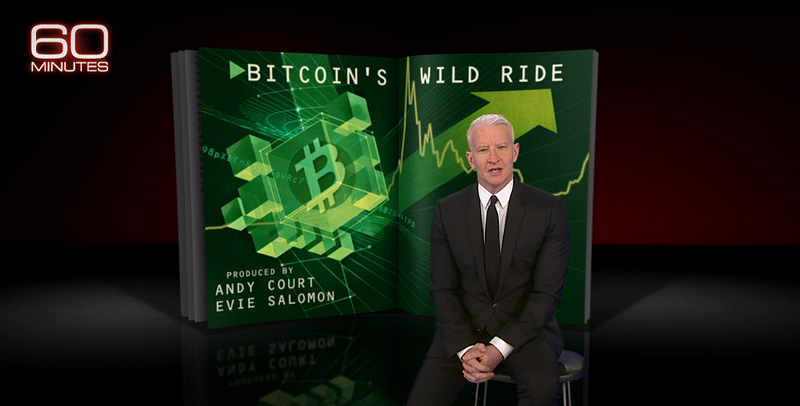
As Bitcoin finished climbing back to $8k USD support, CBS rolled out a timely and appropriate 60 Minutes session regarding the new, innovative currency concept. While we were able to hear positive anecdotes, as well as a flurry of negative sentiment, we also were left realizing that the show producers and staff were left with one overarching emotion: confusion.
https://medium.com/@support_23187/bears-bulls-a-bitcoin-rebound-24d370775a48
But let’s be honest with ourselves, Bitcoin and the cryptocurrency industry as a whole still remains as a very early, evolving and maturing transaction concept. We have years of history and development, but many of the core aspects are not fully understood or grasped by the average, general public. With that said, as Anderson Cooper himself states, the term “Bitcoin” has continued to build its way within our culture and our language as the industry has continued to grow.
https://medium.com/@support_23187/bears-bulls-a-bitcoin-rebound-24d370775a48
The fact that Bitcoin itself has become a subject of 60 Minutes is a testament to this growing prominence, positive or negative alike. Let’s take some time to break down some of the guests on this segment, their stories and thoughts and how this applies to the industry as a whole.
Charlie Shrem
As one of our own Advisors to the Latium project, Charlie Shrem has positioned himself as an industry titan within this market space. Like any entrepreneur, Charlie himself endured an important lesson in the many intricacies of not only building a business, but also spearheading a revolution that revolved around traditional, and not yet regulated, currency transaction events.
We are happy to announce the addition of @CharlieShrem as an advisor to the #Latium project!
Charlie brings with him a wealth of knowledge & industry experience as he focuses with us as a Business Development Advisor.
We extend a warm welcome & look forward to working together! pic.twitter.com/5GvVnvEnW2
— Latium (@LatiumCoin) March 11, 2019
As was to be expected, CBS led with the inexplicable idea that while you could have made millions on Bitcoin, you could also lose it all with poor decisions or inexperience. Anderson Cooper states,
“ Over the last decade, you could have made a five million percent profit by investing in cryptocurrency. Or you could have lost everything.” -Anderson Cooper, 60 Minutes
Anderson Cooper and Charlie Shrem continue with,
“…but we were not thinking about what would happen when eventually we have to go back down? And, for me, I dealt with the ultimate going back down.
Anderson Cooper: You crashed hard?
Charlie Shrem: Crashed really hard.”
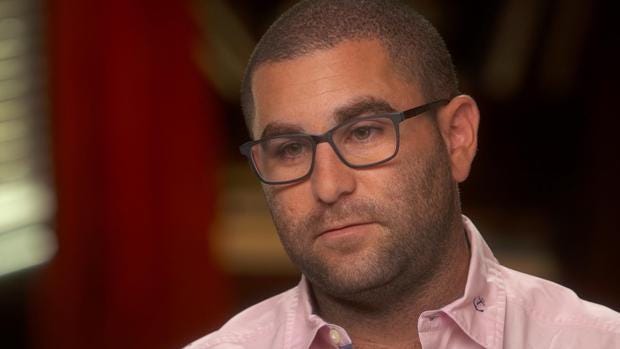
Charlie himself shared a story of upbringing not unlike many of the early participants within the technologically heavy cryptocurrency industry. While being a self proclaimed, socially awkward teen lacking ego or self esteem, he felt comfortable around computers, technology and innovative concepts of the time. Using this as a driving force for his own impetus and dreams, he chose to launch himself head first into this new and exciting concept we now know as a global industry and market.
From his first business venture in 2011 with BitInstant, through the rising climb and strategic investment by the Winklevoss twins (of Facebook fame), Charlie navigated the complex and hectic journey of crypocurrency at the time. Charlie continues with,
“Charlie Shrem: I went from being a kid who had no self-confidence to the complete opposite, with a crazy ego. And I was doing, you know, media interviews every day and I was the evangelizer of the industry — the bitcoin Moses as they would call me.
Anderson Cooper: You go from being the last kid picked at dodgeball — to, you know…
Charlie Shrem: Running the team.”
Bitcoin and crypto was an outlet of entrepreneurial spirit, of inspiration, dedication and pursuits. Much like the rise of Bitcoin itself, Charlie himself redefined what he looked to accomplish and ultimately who he was as a person. These opportunities are not unlike the unique options afforded to market participants that wish to freely enter into an evolving market, to take control of their assets, transactions and distribution of wealth within their own realm of influence.
But much like Bitcoin, these pursuits came with their own caveats and pitfalls. Charlie himself admits to major mistakes at this time in his life and career. As we are all readily aware with current regulation and legislation compliance, the long arm of government intervention itself brings a heavy handed oversight into any industry or concept where true monetary value is attached.
Anderson and Charlie continue,
“Charlie was charismatic.
Charlie was funny.
But could charlie be trusted to run a business?
In a new book, “Bitcoin Billionaires,” Ben Mezrich describes how BitInstant’s biggest investors, the Winklevoss twins, grew concerned that their young CEO was spending too much time travelling and partying and not paying enough attention to the details of running his company. For example: Charlie knew the U.S. government was concerned about how cyber-thieves and money-launderers were using bitcoin. His company was required to monitor its customers and report any suspicious activity. Banks have whole departments that are supposed to do this. The person at BitInstant who Charlie put in charge of it, was Charlie.
Anderson Cooper: So you were in charge — of making sure that you complied with — with rules and regulations for financial transaction —
Charlie Shrem: Yes.
Anderson Cooper: Was that a good idea?
Charlie Shrem: No. (LAUGHTER) Very bad idea.”
This decision in business operation ultimately led to a legal intervention with Charlie and federal authorities. Seen as an early growing pain of the convoluted and complex, fledgling industry, Charlie Shrem made mistakes. Similarly, in life and business, however, our mistakes themselves do not define us, but instead are defined by how we react, learn and build from them.
Federal agents had evidence that Charlie knew one of his customers was buying bitcoin and then re-selling it on a website where it was used to buy illegal drugs.
“Charlie Shrem: When I got arrested, the first thing I told my lawyer is, “I’m guilty. Let’s make a deal.” Because I knew immediately that I had done what they said I did.
One of bitcoin’s first millionaires was now one of its first felons. But that didn’t stop the market price of bitcoin from rising from about $250 when Charlie went to prison in 2015 to nearly 20,000 dollars at the end of 2017. It then plunged 84% before climbing back to more than $8,000 this past week.”
While not immediately touched upon within the segment, we continue to learn later that Charlie Shrem himself got back up, learned from his mistakes, and continued to be successful within the industry he was so deeply involved with during its early inception. Most importantly, Charlie took from these events a sense of humility and understanding.
“ Charlie Shrem spent a year in prison. When he got out, the man once described as “Bitcoin Moses” worked in a restaurant, parting seas of dirty dishes for $8 an hour. But like bitcoin, Charlie Shrem bounced back.”
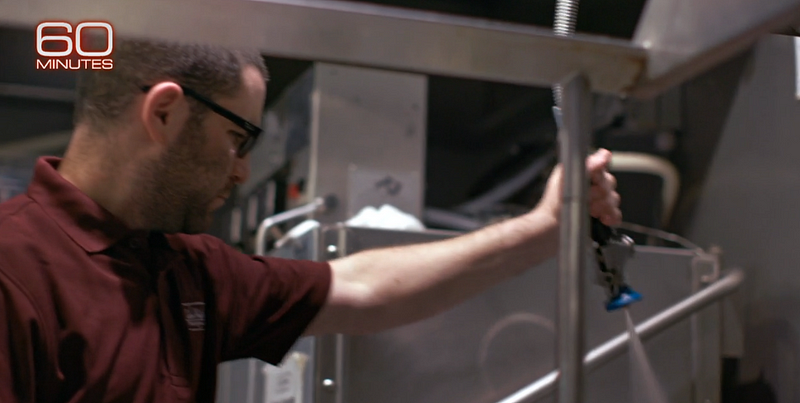
There was no shame with this choice of action. While many past assets and endeavors may have been laid to rest, Charlie would not sit idly by and let his passions fade. In fact, Charlie himself points to other aspects of himself and portrayal as a constant reminder to himself.
Haters gonna hate. I wear flip flops as a daily reminder that I can. It’s my way of always remembering that if I do something stupid I’ll have to go back to being a dishwasher. https://t.co/HzSoUrvX1O
— Charlie Shrem (@CharlieShrem) May 20, 2019
Through unbridled determination and work ethic, Charlie Shrem has again placed himself on top within the industry, currently leading CryptoIQ, while also working with various projects. As Anderson Cooper states,
“ Three years after getting out of prison, he’s living very comfortably in Florida. He told us he’s made money blogging, consulting, and investing in cryptocurrency and is now captain of his own destiny. He’s even got a boat he named “Satoshi,” after bitcoin’s mysterious creator.”
Neha Narula
Neha Narula was a welcome sight to the 60 minutes segment to say the least. As a strong, positive proponent for cryptocurrencies, Neha is the director of the Digital Currency Initiative at the MIT Media Lab. While advocating for the ongoing evolution of the digital currency space, Neha has also given a TED talk on the future of money and cryptocurrencies.
Setting aside Anderson Coopers admittedly doubtful expression, Neha is unfazed and explains the concepts behind the blockchain in simple form.
“Neha Narula: The blockchain’s stored on thousands of computers around the world.
Neha Narula: The idea behind the blockchain is that it’s everywhere. And everyone can look at it and verify it for themselves. And so what this means is that you get this sense of trust. You get this sense of security because everyone’s watching.”
Anderson’s first question for Neha is one we have heard all too often, surrounding the idea of attempting to grasp what truly gives Bitcoin value. Anderson continues,
“ Why would people have trust in something that is just numbers and letters? It doesn’t have anything backing it up.”
Not backing down, Neha explains the rudimentary concepts that overarch any currency, traditional or digital alike.
“Neha Narula: I think to answer that question, you really have to go back to sorta the roots of money and what is money. The reason that the $5 bill in my wallet has value is because I know you’ll take it from me for something. I can buy a sandwich from you with that $5 bill.
Anderson Cooper: So it has value because people believe in it?
Neha Narula: Exactly. And that’s it. That’s really it.”
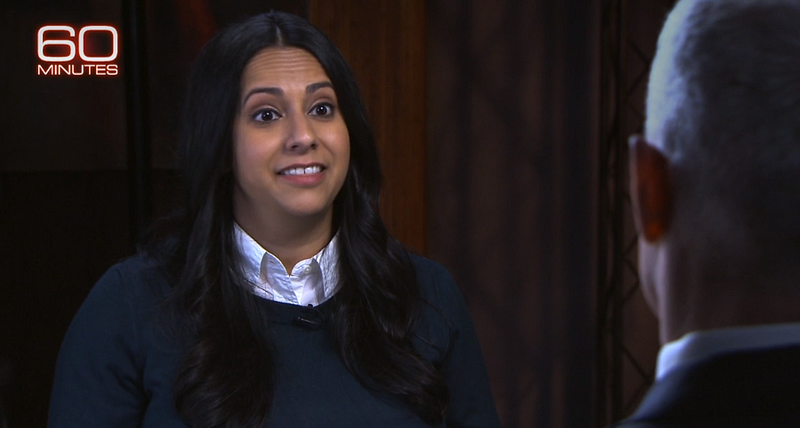
This is, after all, the very basic concept that drives monetary value for anything. Regardless of whether something has innate, intrinsic value, the true worth is the faith, trust and knowledge that someone will accept it as a form of currency. Similarly, the US Dollar drives worth through the faith placed in the government issuing the currency. Asset backing for US currencies are minimal, at best.
In fact, if you dig deeper into the US Treasury you’ll find that the majority of US currency is backed by various securities, which, you guessed it, are financial instruments able to be traded between parties. You still place faith in the issuer and ability to transact with the currency in question.
https://medium.com/@support_23187/bears-bulls-a-bitcoin-rebound-24d370775a48
“The Congress has specified that Federal Reserve Banks must hold collateral equal in value to the Federal Reserve notes that the Federal Reserve Bank puts in to circulation. This collateral is chiefly held in the form of U.S. Treasury, federal agency, and government-sponsored enterprise securities.”
While Neha is fully positive regarding the future and sustainability of cryptocurrencies, 60 minutes offers another more government regulated, opposing view.
Lael Brainard
Not one to simply post a predominantly positive opinion on Bitcoin, CBS chose to include the thoughts from Lael Brainard, one of the governors at the Federal Reserve. Anderson led with a somewhat loaded question, asking:
“ Anderson Cooper: There are people who say that cryptocurrency — it’s better than real currency because it’s not controlled by any government and it means it’s not subject to manipulation by central bankers like you, no offense.”
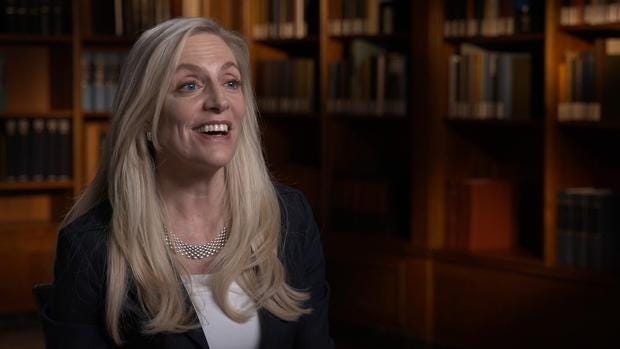
With a marked determination of legislative backing, Lael was quick to respond with her statements of opinion regarding the newly created currency format.
“Lael Brainard: The U.S. — currency has a whole set of legal protections around it. The federal reserve and ultimately the U.S. treasury stand behind it. And when you hold your dollars in a bank account, you have deposit insurance.
Anderson Cooper: And that doesn’t exist with cryptocurrencies?
Lael Brainard: None of those accountability mechanisms exist — for bitcoin.”
While Lael Brainard attempts to quickly see these lack of legal protections as a negative, ultimately she shows a lack of understanding of the entire concept of decentralization of asset management and transaction. One couldn’t blame her, given her line of work and regulatory positioning. With that said, her swift and somewhat brash discount of any and all cryptocurrency as a valid payment source echos a traditional, nigh archaic hierarchical system still in place today.
It’s no secret that a government official would see inherent issue with a currency transaction outside the traditional legal bounds and control of the governmental body. However, as the cultural phenomenon of decentralized blockchain transactions continues to expand, lawmakers will be forced to begin introducing more clear minded and moderate guidelines for individuals to operate within.
What we find ourselves at the root of is a veritable draw between innovators in the industry calling for a return to true, individual ownership of assets, and those within the government sector vehemently attempting to paint a negative and damning image of Bitcoin and its history.
But speaking of assets and Bitcoin history…
Laszlo Hanyecz
After setting up numerous positive and negative opinions on the evolution of Bitcoin, CBS chose to also include the story of one of the first, public usages of Bitcoin for real world goods, in this case, pizza.
To those of us active within the crypto industry, the story of an early purchase of pizza paid with Bitcoin remains etched in our memories and placed on the pedestal of monumental moments for the early inception of the digital currency.
“ At first, bitcoin was just an interesting experiment conducted at home by computer programmers like Laszlo Hanyecz. Because his computer was one of those computers helping to maintain the bitcoin network, Satoshi Nakamoto’s software rewarded Hanyecz with some bitcoin.
But there wasn’t much he could do with it back in 2010. So he went on an internet chat forum and asked whether anyone would be willing to buy him some pizza in exchange for 10,000 bitcoin.”
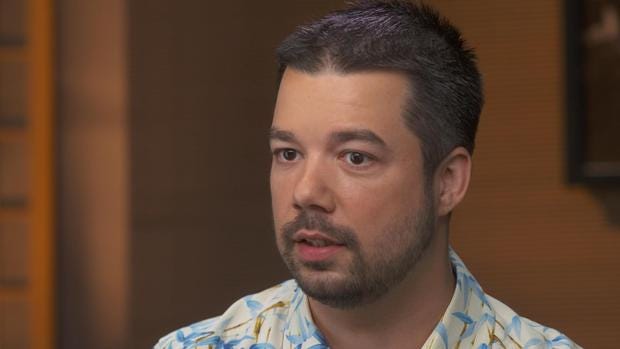
What we see explained is the events of the first real world utility and application of Bitcoin for real world goods.
“Laszlo Hanyecz: And somebody there said, “Hey, I’ll — you know, I’ll take you up on that offer.” Here you can see the original pizzas. And that’s my daughter’s hand. She was a year old.”
That pizza obtained with bitcoin by Laszlo Hanyecz and enjoyed by his daughter nine years ago is believed to be the first real-world transaction involving cryptocurrency.

“Anderson Cooper: Do you feel like, after that that that changed people’s perception of it, in a way?
Laszlo Hanyecz: I think it — it made it real for some people. I mean it certainly did for me.”
While Bitcoin has risen astronomically since this transaction, Laszlo continues his positive outlook and usage of the Bitcoin cryptocurrency. This innate belief and passion for decentralized asset transactions is the focal driving point behind a multi billion dollar, global industry that we see in action today.
https://twitter.com/LatiumCoin/status/1131263004484546562
Regardless of the ongoing rise, fall and continued resurgence of Bitcoin pricing, individuals across the globe have historically continued to see and exchange value for Bitcoin. Anderson continues with,
“ Remember: a bitcoin was worth less than a penny when Laszlo Hanyecz first traded bitcoin for pizza nine years ago. We calculated that if Hanyecz had held onto all the bitcoin he used back then to get various items, much of it pizza, by the time of our interview those bitcoins would have been worth…”
“Anderson Cooper: $800 million.”
“Laszlo Hanyecz: Yeah.
Anderson Cooper: So — okay. (CHUCKLE) Sorry, let me just get this straight. You spent about $800 million on pizza?
Laszlo Hanyecz: Well, if you look at today’s exchange rate.”
For any industry or asset, hindsight is truly 20/20. It’s easy to know the right thing to do after something has happened, but it’s hard to predict the future. Anderson Cooper, somewhat taken aback by this current valuation, continues the conversation.
“Anderson Cooper: Are there nights you wake up, like, in a cold sweat, where — you — (CHUCKLE) think — “I could have had 800 million dollars if I hadn’t bought those pizzas?”
Laszlo Hanyecz: I think thinking like that is — is not really good for me.”
It is understandable that 60 Minutes would spin this idea to what could have been, rather than the innovation of what DID occur. Without a doubt, many of us given the opportunity would go back in time and acquire as many Bitcoins as possible. This is undeniable.
What truly stands the test of time, however, are the actions that each and every participant within the industry complete to further expand and cement the innovation of crypto into the daily, general public adoption.
Laszlo did just this.
Seeing current value of Bitcoin at the time, he took the opportunity and exchanged digital currency for intrinsic, physical goods. General adoption is driven by current valuation and usage, rather than ongoing speculation of what could or might occur.
Perception is Reality
The inclusion of Bitcoin on 60 Minutes by a major news source is without a doubt a monumental occasion for Bitcoin and the entire cryptocurrency industry. As the industry continues to expand and evolve before our eyes, we realize that the perception of Bitcoin continues to affect the curious minds of the general public throughout the world.
Each and every mention, story and media insight drives home the undeniable growth and utility of crypto within our daily lives. There are major proponents for the rise of digital currencies. There are equally major detractors that spread fear and paint doubt regarding the longevity of these currencies. All of this aside, crypto continues to flourish in development, exchange and utility, creating a catalyst for even more innovation to come.
Here at Latium we realize and stand behind this concept. We are fully invested in our efforts, time and energy as we continue to develop our own platform at Latium. By opening the doors to a wide variety of new and existing crypto users, we truly believe in the ongoing growth of usage and currencies available. Equally, we apply these efforts and remain stalwart in our responsibility to the industry to further assist and expand this cultural phenomenon spawned by Bitcoin from its early inception.
There will continue to be those who do not believe in crypto. There will also continue to be those that see the value and innovative opportunities presented within a new market segment. In fact, 60 Minutes closes with this very thought.
“Neha Narula: People used to say, “Why do we need email? I can just call someone on the phone. And now, we can’t live without it.
Anderson Cooper: So this is one of those conversations that 20 years from now, someone could replay, and have a good laugh because I’m asking such moronic questions that will be so obvious to everybody?
Neha Narula: Or they’ll be laughing at me because I said cryptocurrencies were gonna be a thing and they totally flamed out and died.
Anderson Cooper: It still could go either way.
Neha Narula: It could really go either way. It’s — that’s what makes it so exciting and interesting.”
Thank you for your interest in the the Latium platform. As always you can follow us on Twitter and join our Telegram Chat for the latest news, updates and developments as we progress.







